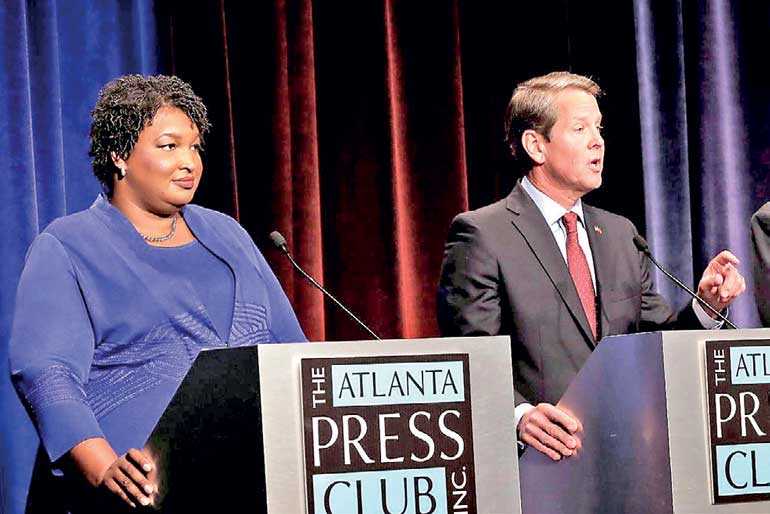Tuesday Feb 17, 2026
Tuesday Feb 17, 2026
Wednesday, 7 November 2018 00:00 - - {{hitsCtrl.values.hits}}

TALLAHASSEE, Fla. (Reuters): Showdowns in Georgia and Florida pitting black Democratic candidates against white Republicans supported by President Donald Trump headline the three dozen governors’ races being contested in Tuesday’s U.S. elections.
In Georgia, Stacey Abrams is vying to become the nation’s first African-American female governor. She and Andrew Gillum in Florida would also be the first black governor in each of their states.
Abrams, 44, and Gillum, 39, are testing a new liberal path in Southern states where traditional, centrist Democrats have repeatedly lost. They seek to rally greater numbers of young voters and minorities, who typically favor Democrats but often sit out elections in non-presidential years.
“It’s a very, very big experiment,” said Jennifer Duffy, who analyses governors’ races for the nonpartisan Cook Political Report. “Turnout in both of these states is going to matter a lot.”
Trump’s reputation is on the line with Republicans Brian Kemp, 55, in Georgia and Ron DeSantis, 40, in Florida after his endorsement helped them clinch their party’s nominations. Accusations of race-baiting have dogged both candidates, who deny the charges.
While much of the focus on Tuesday is on which party wins control of the US Congress, Republicans and Democrats are battling across the country for state-level power, which can help them support or resist Trump’s agenda on issues such as healthcare, gun control and gay rights.
Democrats, playing catch-up after a net loss of 13 governorships and more than 900 state legislative seats during Democratic President Barack Obama’s years in office, are fielding their largest slate of legislative candidates in more than three decades.
Republicans now control 33 governor’s mansions and two-thirds of state legislative chambers.
The outcome of elections for state positions could also affect future control of the US House of Representatives.